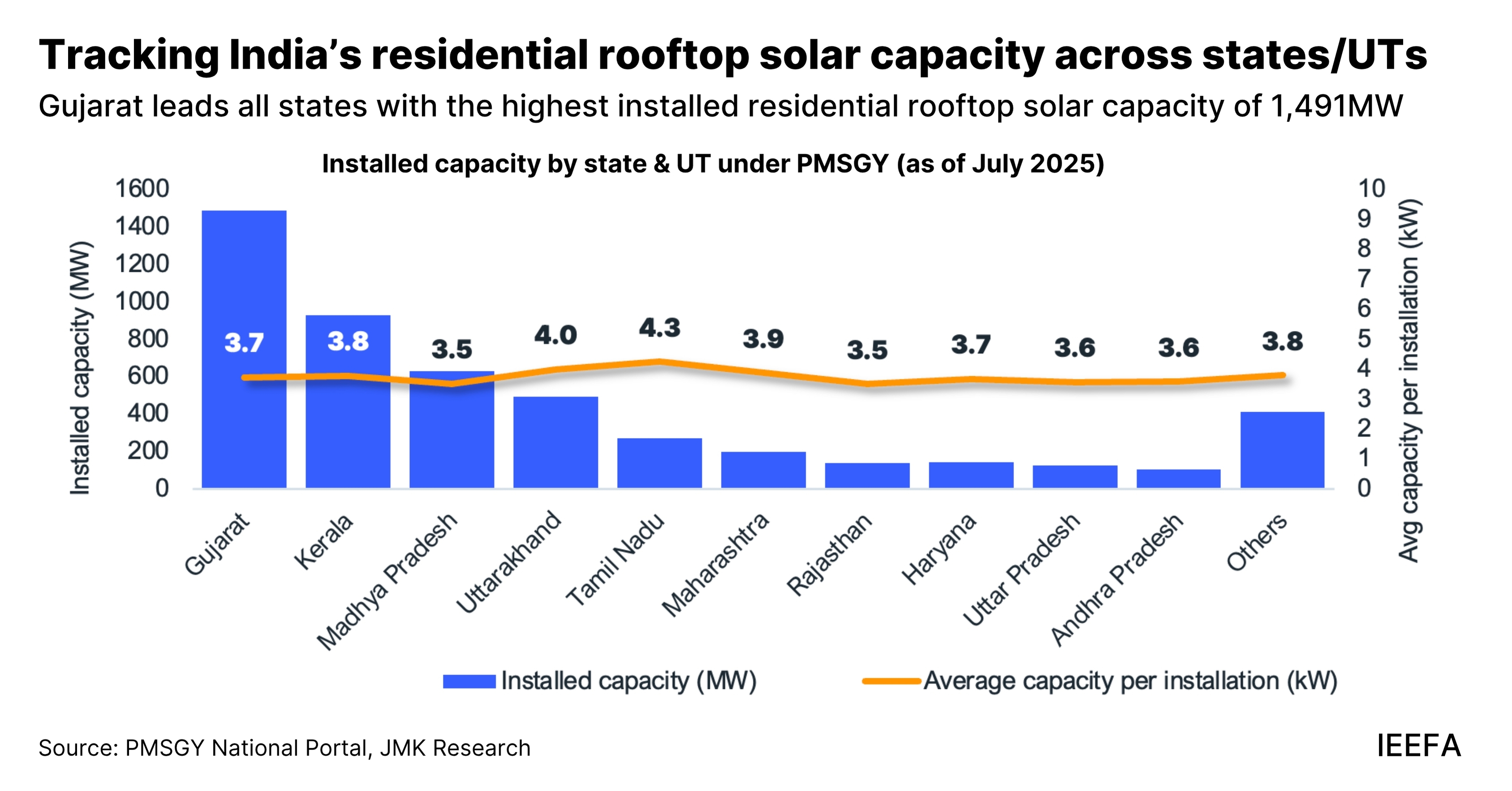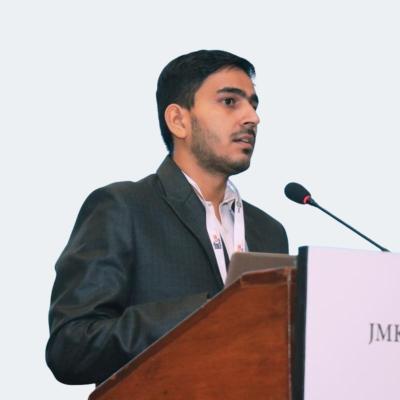PMSGY accelerates residential rooftop solar, yet supply and financing hurdles remain

Under the Pradhan Mantri Surya Ghar Yojana (PMSGY), 4,946MW of residential rooftop solar capacity has been installed until July 2025 across various states and UTs, while subsidy disbursements have crossed INR9,280 crore (US$1.05 billion)
Key Takeaways:
Before the launch of the scheme last year, residential rooftop solar adoption was concentrated in the commercial and industrial segments, while the residential sector lagged due to high upfront costs and limited awareness. PMSGY addressed this gap by offering capital incentives and simplified procedures to make rooftop solar financially attractive for households.
Growing public interest in solar adoption under the programme has been tempered by limited awareness of financing options, complex loan procedures, technical glitches in the grievance redressal system, and fragmented supply chains.
As of July 2025, the national installation-to-application conversion ratio under PMSGY stood at just 22.7%, underscoring the challenges in translating demand into actual residential rooftop solar capacity. Gujarat and Kerala lead with high conversion ratios of above 65%, supported by a mature solar ecosystem, strong vendor base and high consumer awareness.
To accelerate residential rooftop solar deployment, several states have implemented financial incentives that either supplement the central subsidy or independently support consumers. States like Assam, Delhi, Goa, Uttar Pradesh, and Uttarakhand have introduced direct capital subsidies to offset high upfront installation costs.
14 October 2025 (IEEFA South Asia and JMK Research): The government’s Pradhan Mantri Surya Ghar Yojana (PMSGY) has transformed India’s residential rooftop solar segment, adding about 4.9GW capacity in just over a year of its launch, according to a new report by the Institute for Energy Economics and Financial Analysis (IEEFA) and JMK Research & Analytics.
The report highlights that as of July 2025, PMSGY has witnessed significant traction, with over 57.9 lakh applications submitted for residential rooftop solar installations.
However, despite a near fourfold increase in applications between March 2024 and July 2025, only 13.1% of the target of 1 crore (10 million) installations and just 14.1% of the allocated INR 65,700 crore (USD 7.5 billion) in subsidies released till July 2025. Given this context, achieving the FY2027 target of 30GW capacity continues to be seen as a considerable challenge.
Under PMSGY, Gujarat leads all states with the highest installed residential rooftop solar capacity of 1,491MW, followed by Maharashtra, Uttar Pradesh, Kerala, and Rajasthan. These states together account for approximately 77.2% of the total installed capacity (4,946 MW) under the scheme till July 2025.
“PMSGY has steadily expanded its policy framework to speed up residential rooftop solar adoption. Since 2024, it has rolled out a nationwide capacity-building programme to train over three lakh people and help vendors, utilities and financiers upskill,” says Jyoti Gulia, Founder, JMK Research, and a contributing author of the report.
The “Innovative Projects” component provides grants covering up to 60% of project costs to support pilot initiatives and new business models. Meanwhile, a new digital Domestic Content Requirement ensures verified use of domestic materials in solar modules. Additionally, states and Union territories are being encouraged to develop solar cities and model solar villages.
“However, low consumer awareness and access to finance remain significant barriers to the adoption of rooftop solar. Outdated perceptions of high upfront costs and maintenance persist, especially in rural areas,” says Prabhakar Sharma, senior consultant, JMK Research, and a co-author of this report.
Fragmented supply chains for key rooftop solar components, such as panels, inverters, and mounting structures, also cause implementation delays, the report highlights.
“Establishing clear, time-bound rooftop solar capacity targets at the state level is essential for creating a coherent vision and ensuring effective policy execution,” says Vibhuti Garg, Director, IEEFA - South Asia, and a contributing author.
A grievance redressal system has been set up under PMSGY, but its effectiveness is limited. “PMSGY should establish a district-level escalation matrix so that subsidy disbursement delays, incorrect data entries or portal malfunctions can be routed beyond the DISCOM or portal level,” says Aman Gupta, research associate at JMK Research, and a co-author of this report.
To increase the conversion of applications into actual installations, state- and district-level facilitation cells should guide households in filing applications and claiming subsidies. Marketing campaigns and consumer outreach initiatives can be taken up to educate potential adopters.
“The rooftop solar market continues to face fragmented quality and weak end-to-end guarantees, challenges that standardised plug-and-play solutions can resolve,” notes Sharma. Promoting the commoditisation of rooftop solar kits, with modules, inverters, mounting structures, and cables supplied as standardised, pre-assembled packages, can simplify installation and minimise project delays.
The long-term success of PMSGY hinges not only on the provision of subsidies but also on its ability to institutionalise streamlined digital processes, standardised product solutions, and consumer-centric support systems, the authors emphasise.
Read the report: Advancing residential rooftop solar adoption in India under PM Surya Ghar Yojana
Media contact: Prionka Jha ([email protected]); +91 9818884854
Author contacts: Vibhuti Garg ([email protected]); Jyoti Gulia ([email protected]), Prabhakar Sharma ([email protected]); Aman Gupta ([email protected]), Gaurav Upadhyay ([email protected])
About IEEFA: The Institute for Energy Economics and Financial Analysis (IEEFA) examines issues related to energy markets, trends, and policies. The Institute’s mission is to accelerate the transition to a diverse, sustainable and profitable energy economy. (ieefa.org)
About JMK Research: JMK Research & Analytics provides research and advisory services to Indian and international clients across renewables, electric mobility, and the battery storage market. www.jmkresearch.com

















